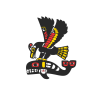Plan would include private forest lands

The first significant steps in the next phase of the development of major plans and strategies to deal with the increasingly troubled Koksilah watershed are being taken.
Speaking to the Cowichan Valley Regional District’s committee of the whole on Sept. 27, Natasha Overduin, joint executive director of the Xwulqu’selu watershed planning process, a joint project being conducted by Cowichan Tribes and the province, said a three-year process to fully implement the plan is expected.
She said the extreme drought this summer that has caused many commercial users of groundwater in the Koksilah watershed to be told not to use water illustrates just how serious the situation has become.
“There’s not enough flows in the Koksilah River in the summer to support the demand for water from users and the needs of the ecosystem, and in the winter, flood events are impacting communities and the ecosystems and that is caused, not only by increasingly extreme weather, but also by extreme changes in the forest landscape,” Overduin said.
“Water shortages in the watershed are getting drastic enough that all of the voluntary efforts that farmers and residents are doing — like conservation and coordinating irrigation — are not really cutting it, and the province has had to make interventions to stop users from using water. The current management system is not set up to deal with this.”
Overduin said continuing in a constant crisis-response mode in dealing with the issues is not a good option.
“The cracks and the strain are starting to show and we’re seeing impacts on the ecosystems and on people’s well being, mental health, livelihoods and the social fabric,” she said.
“We’re seeing that water is becoming a real source of conflict and tension between neighbours. Right now, governments and communities don’t have a plan for how to adapt and deal with this new and worsening situation.”
Overduin said the process to set up a plan for the watershed is intended to be that solution, and for all stakeholders to work together to try and think ahead proactively to develop the best way to manage water resources in the watershed.
RELATED STORY: WATER SYSTEMS IN COWICHAN REGION IN CRITICAL SHAPE, WATERSHED BOARD WARNS
“We often talk about the need for plans that have teeth and effect real change and these WSPs can do that,” Overduin said.
“It’s quite significant as it’s never been done before in B.C. so everyone is figuring this out for the first time. Cowichan Tribes and the province began to scope out what a WSP for the Koksilah watershed would look like a couple of years ago, and in May, the chief of Cowichan Tribes and ministers from three agencies signed an historic agreement to do a WSP.”
RELATED STORY: COWICHAN TRIBES, PROVINCE SIGN B.C.’S FIRST WATER SUSTAINABILITY PLAN
Overduin said one unique aspect of setting up a WSP for the Koksilah watershed is that it would include the whole watershed, including private forest land.
She said no one knows what that will look like at this stage and conversations with the private forest sector are in the early stages.
“We know it’s going to be challenging to figure out how to work together and come up with real tangible options,” Overduin said.
Overduin said a collaborative community advisory table, a 19-member advisory body consisting of stakeholders from various backgrounds that will provide input and advice to the establishment of the WSP, is being formed, and WSP teams are meeting regularly, with a focus on priority-setting, work planning, staffing up, and resourcing.
“There will be no silver bullets here, and there will be hard conversations and hard choices to make,” she said.
Board chair Aaron Stone said implementing a WSP for the Koksilah watershed is important, but acknowledged that bringing forest companies on board could prove challenging.
He said it’s become clear that the companies are a major contributor to the ongoing droughts and floods in the watershed.
“I support the forest industry, but there’s enough bounty in our forests to protect our most critical watersheds,” Stone said.
“I’m excited about this work and I think it will provide us with a model we can employ in our other watersheds.”
 Email
Email



